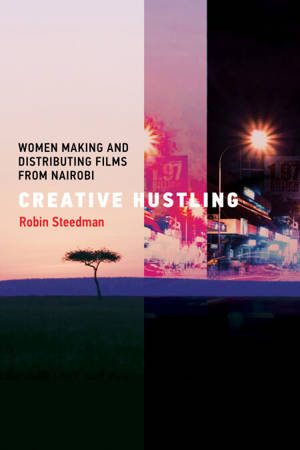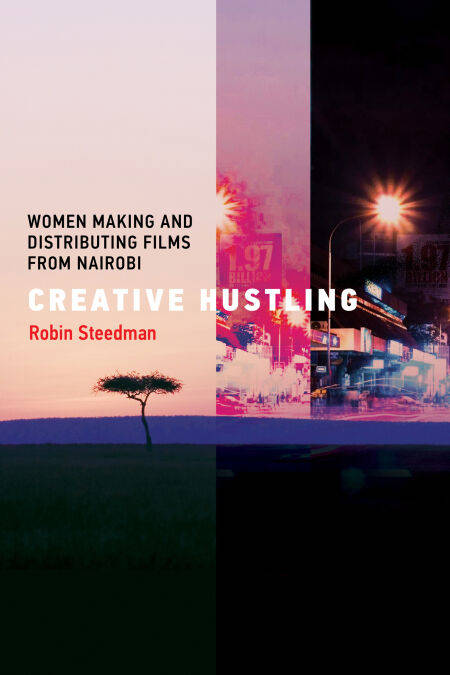
Bedankt voor het vertrouwen het afgelopen jaar! Om jou te bedanken bieden we GRATIS verzending (in België) aan op alles gedurende de hele maand januari.
- Afhalen na 1 uur in een winkel met voorraad
- In januari gratis thuislevering in België
- Ruim aanbod met 7 miljoen producten
Bedankt voor het vertrouwen het afgelopen jaar! Om jou te bedanken bieden we GRATIS verzending (in België) aan op alles gedurende de hele maand januari.
- Afhalen na 1 uur in een winkel met voorraad
- In januari gratis thuislevering in België
- Ruim aanbod met 7 miljoen producten
Zoeken
€ 34,49
+ 34 punten
Omschrijving
The first book-length study of Nairobi-based female filmmakers—and how their dogged pursuit of opportunities, innovation, and cultural support is defining an industry.
Nairobi, the capital of Kenya, is home to something extraordinary and unlikely: in this city, the most critically acclaimed filmmakers—both directors and producers—are women. Yet, across the globe, women make up less than 10 percent of film directors. In Creative Hustling, Robin Steedman takes a closer look at these remarkable women filmmakers, viewing them not only as auteurs, but also as entrepreneurs, who are taking the lead in creating a vibrant, and atypical, screen media industry. To understand their achievement, Steedman theorizes hustling as not only a practice born out of necessity but also an inventive labor in its own right—one that can create new spaces of community by carving new entrepreneurial pathways.
Through original empirical field research gathered over eight months in Nairobi, Steedman describes how female filmmakers go about trying to create their films, as well as the challenges they face in distributing those films in their local market. Along the way, she traces the history of the industry over the last fifteen years, the lack of state support for these filmmakers’ undertakings, the low social standing of the profession, and the transnational conflicts that arise when Euro-American funding is at the heart of Kenyan cinema.
Creative Hustling is a major contribution to the task of de-Westernizing media industry studies, imparting important lessons about what it takes to create and distribute creative work in a global age increasingly marked by uncertain work.
Nairobi, the capital of Kenya, is home to something extraordinary and unlikely: in this city, the most critically acclaimed filmmakers—both directors and producers—are women. Yet, across the globe, women make up less than 10 percent of film directors. In Creative Hustling, Robin Steedman takes a closer look at these remarkable women filmmakers, viewing them not only as auteurs, but also as entrepreneurs, who are taking the lead in creating a vibrant, and atypical, screen media industry. To understand their achievement, Steedman theorizes hustling as not only a practice born out of necessity but also an inventive labor in its own right—one that can create new spaces of community by carving new entrepreneurial pathways.
Through original empirical field research gathered over eight months in Nairobi, Steedman describes how female filmmakers go about trying to create their films, as well as the challenges they face in distributing those films in their local market. Along the way, she traces the history of the industry over the last fifteen years, the lack of state support for these filmmakers’ undertakings, the low social standing of the profession, and the transnational conflicts that arise when Euro-American funding is at the heart of Kenyan cinema.
Creative Hustling is a major contribution to the task of de-Westernizing media industry studies, imparting important lessons about what it takes to create and distribute creative work in a global age increasingly marked by uncertain work.
Specificaties
Betrokkenen
- Auteur(s):
- Uitgeverij:
Inhoud
- Aantal bladzijden:
- 224
- Taal:
- Engels
- Reeks:
Eigenschappen
- Productcode (EAN):
- 9780262372671
- Verschijningsdatum:
- 27/02/2023
- Uitvoering:
- E-book
- Beveiligd met:
- Adobe DRM
- Formaat:
- ePub

Alleen bij Standaard Boekhandel
+ 34 punten op je klantenkaart van Standaard Boekhandel
Beoordelingen
We publiceren alleen reviews die voldoen aan de voorwaarden voor reviews. Bekijk onze voorwaarden voor reviews.









